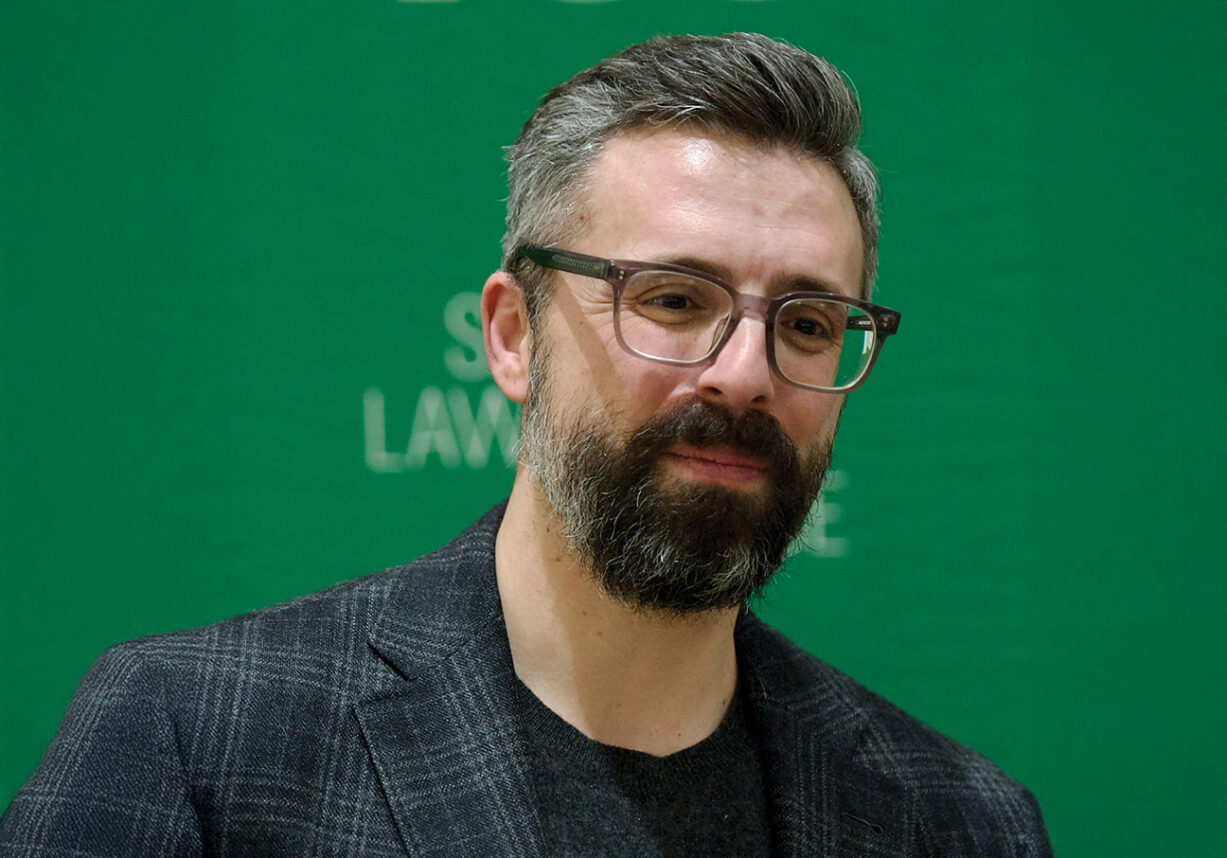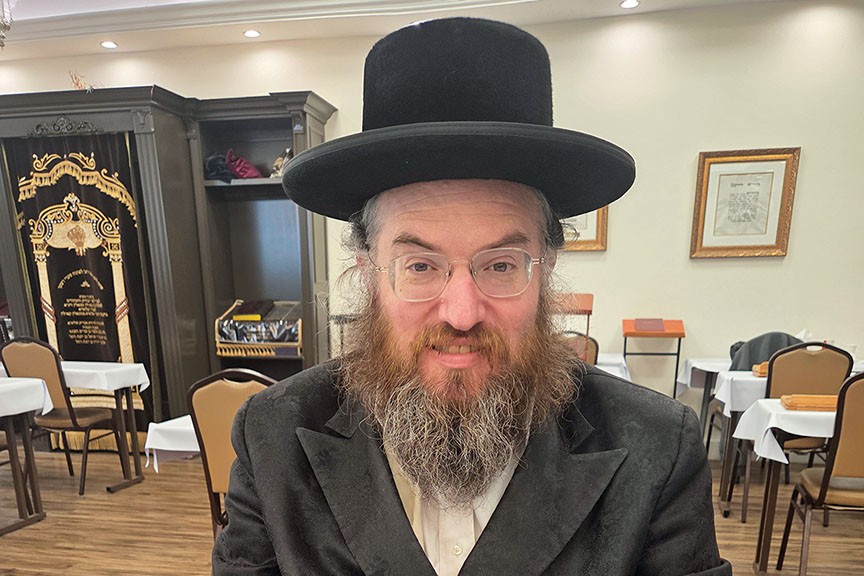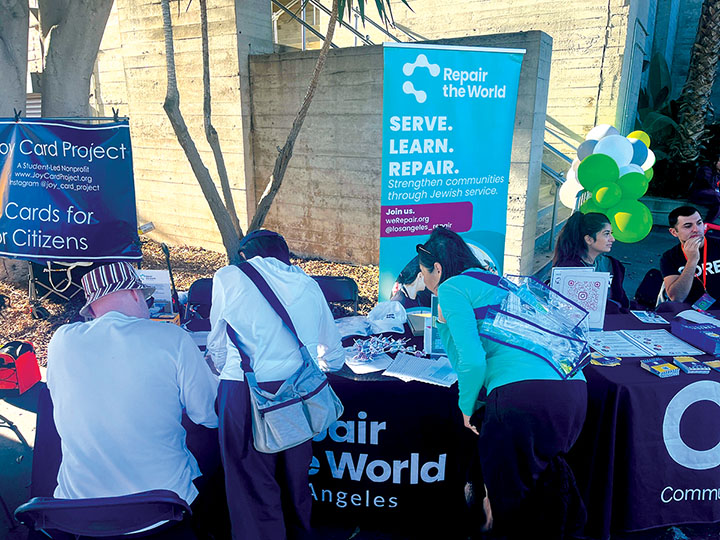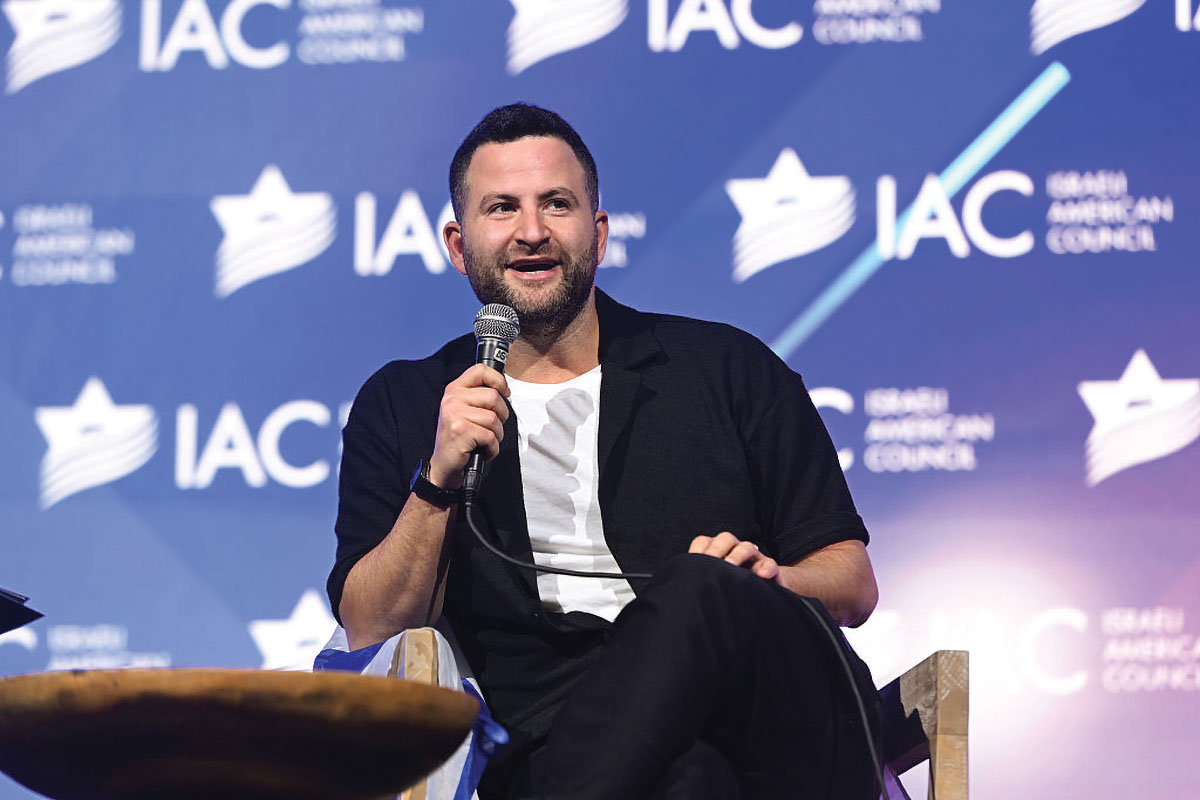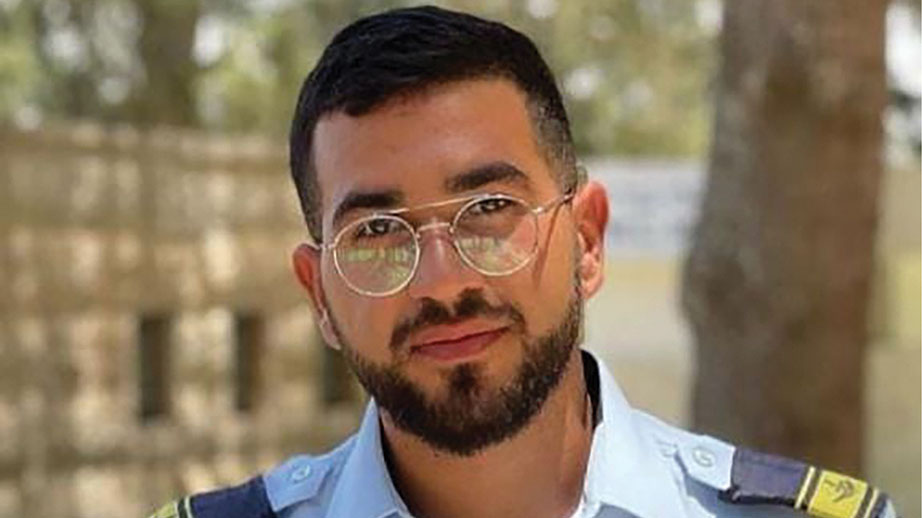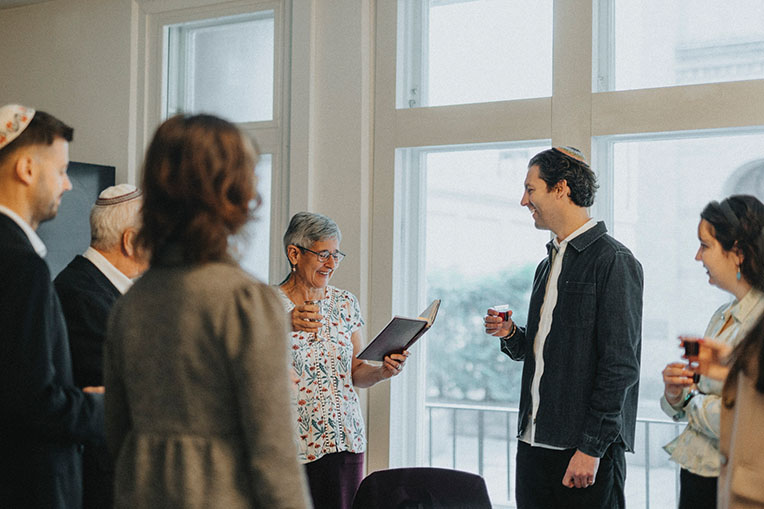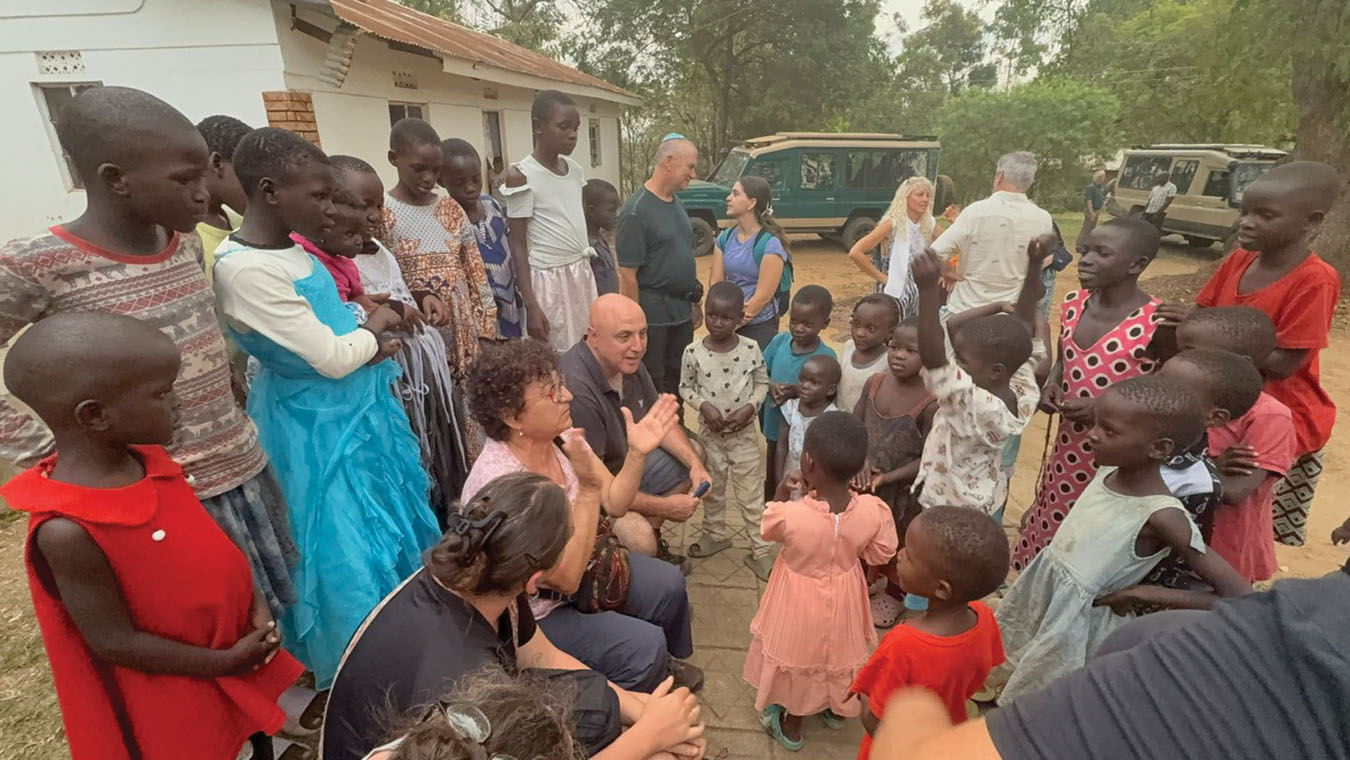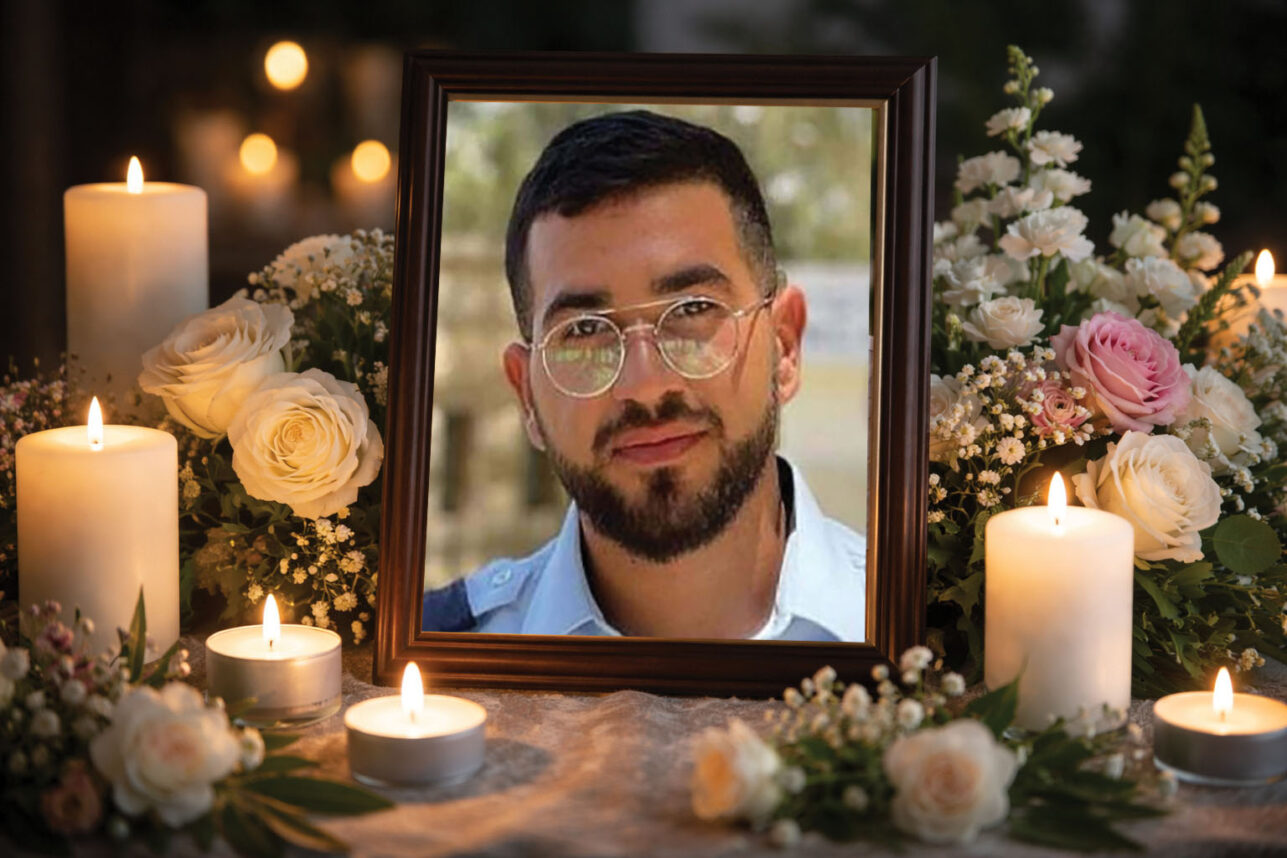As he welcomed a group of home schoolers to an open house at the Slavin Family Children’s Library of the Jewish Community Library, Dr. Gil Graff of the Bureau of Jewish Education cited an ancient Jewish precept: “Each child should be educated according to that child’s particular needs.”
Graff’s words had a special appeal for home schooling families, all of whom believe that a child’s education need not take place within the walls of a classroom.
A growing number of parents from across the Jewish spectrum are choosing to educate their sons and daughters themselves, finding creative ways to tailor the learning process to each youngster’s individual situation.
There are some 2 million home schoolers in the United States, a figure that is growing by 15 percent each year, according to national estimates. Exact figures are hard to come by because, for bureaucratic reasons, some children are enrolled in public or private individualized study programs, while others remain completely outside the system. This means that no government body has a clear count of exactly how many children receive their education at home.
One of many contributors to the increase in home schooling is the Internet, which can link home schooling families in informal communities, while also providing a quick way for a child in California to get curriculum help from an academic institution in Maryland or Vermont.
Home schooling has traditionally attracted religious Christians who hope to keep their children’s education free of secular influences. Though Christian home schooling networks are strong, Jews have been slow to follow suit. This is hardly to say that Jewish home schoolers don’t exist. Within Southern California’s informal home schooling collectives, like Family-Centered Education of Los Angeles (FaCE-LA) and the South Bay Homeschool Network, there are many Jewish participants.
Parents who home school tend to be independent-minded, and each Jewish family seems to have a different reason for making this admittedly unconventional choice.
Fiona Chalom, a psychologist who teaches at Pepperdine University, removed her eldest daughter from her day school when Rachel became bored with the classroom’s slow pace. Now a newly motivated Rachel is back at school, but a second daughter, Sarah, studies at home.
The language and behavior he saw at his children’s secular private school disappointed Cantor Michael Freed of Sinai Temple. Now that he’s their primary teacher, he finds that family ties have strengthened. In addition, the flexible hours suit his kids’ lifestyle, and they no longer run into scheduling conflicts on Shabbat and Jewish holidays.
“From the time my son was in preschool, I thought that he would be stifled in a classroom setting,” says Janice Batzdorff. Because Aaron, now 9-years-old, learns by speaking aloud, she knew he would be taken to task for disrupting his fellow students. As a home schooler, Aaron can learn in his own way, focusing in depth on those topics that most intrigue him, whether it is the music of Beethoven or the 1929 Stock Market Crash. And, because his father is involved with film production, mother and son can travel to far-flung locations without putting his education on hold.
When Susan Silver’s son Charlie entered fourth grade at a well-regarded public school, he was bullied and physically abused by some of his classmates. Administrators did nothing. Finally Silver, herself a credentialed educator, decided to bring him home.
“We want our child to enjoy going to school and not be terrified of recess,” she said. Home schooling has resulted in “the miraculous experience of going from social nightmare to social heaven.” Through association with other home schoolers whose strong sense of self-esteem makes them affectionate and nurturing friends, Charlie has blossomed.
Though many home schoolers follow a formal curriculum set up through academies like Laurel Springs School and the Gorman Learning Center, some families opt to go it entirely alone. Tamah Kushner, whose three children have never been enrolled in any school, says, “One of the benefits for me is I can find the perfect thing for each child.” She admits that this responsibility can be burdensome: “There are times I’d like to have 10 uninterrupted minutes to myself.” Still, she pities her sister who must cram her own parenting into the few short hours after her kids return home from their school day.
Martine Porter-Zasada was putting in long hours at the computer product testing company she’d founded, when the eldest of her four children, Max, reached school age. He was duly enrolled in an Orthodox yeshiva. Then, seven years ago, Porter-Zasada made an important lifestyle choice. “I wanted to be with my children in a very intensive way,” she says. Now they study Torah together, and have trained to be docents at the Children’s Nature Institute. The kids have formed a writing group, practice gymnastics and recently helped stage a play. Max, now 13, is working on three novels, and has become a reading tutor for an 8-year-old Guatemalan boy through the Koreh L.A. program. His parents have allowed him to focus on the literary arts, which he loves, and to downplay math, which he generally finds less interesting. Max concisely sums up the advantages of his upbringing: “Probably the greatest gift of home schooling is time — time to do things at your own pace, time to learn things, time to make good friends.”
Porter-Zasada advertised in “The Link,” a national home school newspaper that boasts a circulation of 25,000, to try and locate other Jewish families. Her ad ran for a year, but she had little success in finding other observant Jews whose commitment to home schooling matched her own.
Home schooling is a touchy subject in the Orthodox community, which places high value on the yeshiva as a place to learn cultural norms. But one local Orthodox rabbi and educator faced a dilemma within his own family. One of his six children was so highly gifted that the secular coursework offered by his yeshiva was far beneath his abilities. The rabbi, who prefers to remain anonymous, admits, “It’s a shame that not every child can be accommodated by every school. But it’s a fact.” To his mind, home schooling is a far better alternative than public school for Jewish children. What he and his wife discovered was a little-known program within the Los Angeles Unified School District that allows youngsters like their son to study independently, under a trained teacher’s supervision.
In California, many school districts offer college-preparatory independent study programs through which students can make progress toward graduation. The Department of Education attests that in 1999-2000, the last year for which statistics are available, 71,334 students in grades K-12 chose this option. Their number has been rising by about 5,000 youngsters a year.
City of Angels, which has branches throughout Los Angeles, serves some 3,000 students who choose for a variety of reasons not to learn within the traditional classroom setting. Instructor Fern Margolis, who oversees middle school and high school students from her office in Venice, explains the program’s philosophy: “We individualize every class for every student, always within the guidelines of the district and the state standards.” It is her job to give students assignments and provide feedback; at times, as in the case of lab science, she sends them to do coursework at local community colleges.
Because Margolis has a rich background in Judaica, she is much in demand with students who come from observant homes. At times, she has helped teens craft arrangements whereby they remain at their yeshivas to further their religious studies, while coming to her for more challenging secular coursework than they would get at their home institutions. But because most Jewish schools naturally expect a full-time commitment, such accommodations are rare. So, Margolis makes sure that observant Jewish students hook up with tutors to continue their pursuit of Jewish learning.
David Keyes, 17, has a passion for tennis that proved incompatible with the Shalhevet school day. His family consulted with Rabbi Avner Weiss, then of Beth Jacob, who advised that he be allowed his dream of a professional tennis career, while finding a way to continue his Jewish studies on the side. He transferred to University High School because of its excellent tennis team, but a public high school was not a good fit for someone with Keyes’ intense learning style. That’s how he landed with Margolis at City of Angels for most of his academic work. He still plays tennis at University, while also studying privately with an expert on Talmudic law. Keyes explains, “My problem was never that I didn’t want to learn. I love to learn.”
The following are some resources for potential home schoolers:
City of Angels, LAUSD: (213) 625-4188 or (818) 995-4276
Calvert School: (888) 487-4652, or www.calvertschool.org
Gorman Learning Center: (877) 890-0718, or www.gormanlearning.org
Laurel Springs School: (800) 377-5890, or www.laurelsprings.com
Oak Meadow: (802) 387-2021, or www.oakmeadow.com
Jewish Community Library of Los Angeles: (323) 761-8648









